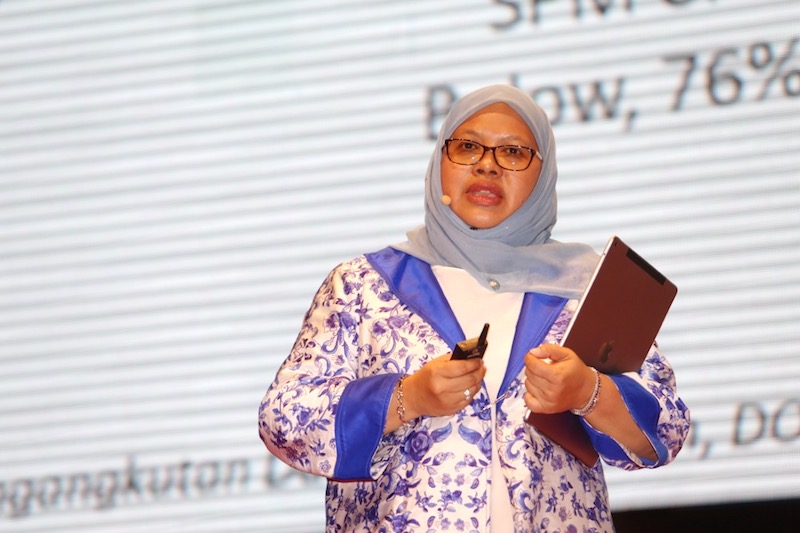KUALA LUMPUR, Oct 23 — Malaysia has a severe shortage in talent in the public transport sector, TalentCorp chief executive Shareen Shariza said today.
Shareen noted that the majority of the local workforce in the public transport sector were low-skilled, a problem that has forced the government to continue relying on foreign talent.
“If you look (at the workforce) the mix is still very much at the lower end of the spectrum,” the TalentCorp CEO told the “Reimagining Transportation: Sustainable Mobility” forum organised by the Land Public Transport Commission (Spad).
“We keep talking about hardware and beautiful trains and so on… but we need to be investing in more talent,” she added.
Up to 76 per cent of the public transport workforce only had qualifications of SPM and below, according to TalentCorp data.
Only 5 per cent had degrees while only 19 per cent had either diplomas or studied up to A levels.
This means critical occupations in the land transport sector like design, build and operations and management were mostly filled by foreigners.
Part of the problem was the lack of appeal the sector has among local graduates, Shareen noted.
For example, from 2014 to 2015, local engineering graduates that entered the rail industry, the country’s main public transportation system, numbered only 336 and 328 respectively, TalentCorp data showed.
“There are talents but we not enough are going into public transport… we don’t have enough talent for important jobs like design, management and operations and build,” Shareen said.
“So we have to look and tap talents from abroad,” she added.
Prime Minister Datuk Seri Najib Razak has made public transport improvement a key feature under his national transformation programme.
Since taking office in 2009, Najib has launched several mega transportation projects that included two Mass Transit Rail projects worth more than RM40 billion and a high-speed rail link connecting the capital city to Singapore.
The Barisan Nasional chairman said projects like the MRT and the HSR are expected to attract “thousands” of high-skilled talents into the public transport system and generate more than RM60 billion in economic value combined by 2060.



















